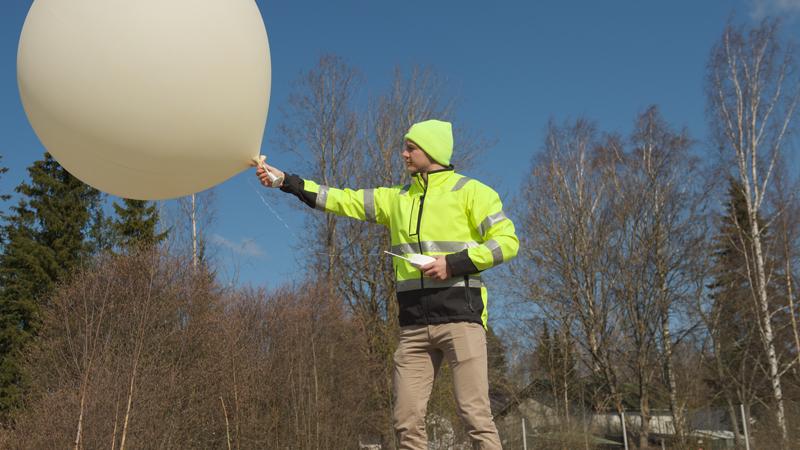Grounded: The impact of a pandemic on weather observations
The COVID-19 pandemic is impacting nearly every business sector around the world, and meteorological observation is no exception.
While many surface-based observation systems are automated, including automatic weather stations and automated soundings, some measurements depend on human observations and on the availability of aircraft flights. During flight, Aircraft Meteorological Data Relay (AMDAR) reports are transmitted to global numerical weather prediction centers. With fewer AMDAR reports, meteorological centers have less data to work with — impacting forecasting accuracy.
Air travel restriction caused by the COVID-19 pandemic has resulted in an 80% – 90% reduction in aircraft weather observation data worldwide.
To compensate for the lack of sounding data, many meteorological institutes are increasing their use of radiosonde observations.
Differences across continents
Europe, for example, has increased the number of daily soundings by about 12 percent. This total includes all stations used in the WMO GTS that use the radiosondes, as the number of soundings at some stations are raised to 3 or 4 per day from the standard 2 per day.
Other continents are affected by different factors. In some areas there has been a decline in surface observations such as in Latin America and Africa.
More soundings = more options
The current increase in radiosonde usage is helping to maintain the forecasting skill by filling the gap left by the lack of air travel. Aircrafts are among the most important contributors to numerical weather prediction. However, without the opportunity to provide that data, meteorological centers can rely on complementary systems to maintain accurate forecasting.
If anything, the current challenges of the COVID-19 pandemic serve as a reminder that we need to be prepared with alternative solutions to ensure accurate and reliable data as our world keeps changing. Even with the ability to predict the weather, we cannot predict all the surprises that pandemics or other global events may have in store for us.


Add new comment